
China’s ‘Ice Boy’ village has more to celebrate this Lunar New Year, but grinding poverty will not be easy to fix
Schoolboy’s icy trek from home opened eyes in more affluent parts of China
There is more to celebrate this Lunar New Year in the snowy, remote village of Zhuanshanbao in the mountains of southwestern China’s Yunnan province.
As villagers gather for the Spring Festival, some children are wearing newer, warmer winter clothes, have shiny new toys to play with and can enjoy confectionery.
But such donations, prompted by a photograph of a frost-covered village schoolboy that became an internet sensation last month, are likely to offer only temporary relief for the deep-seated problems that have left the village, in Ludian county, mired in poverty for decades.
And that poses a challenge to President Xi Jinping’s pledge to eradicate poverty in China by 2020.
In a yellow mud house in a clearing among snow-covered fir trees, eight-year-old Wang Fuman sits in a thick, navy, velvet jacket that is cosier than the light brown coat he was wearing weeks ago when he arrived at school with frost in his hair and eyelashes.
Stretched out on a ragged cloth sofa, Fuman is engrossed in a colourful children’s book, 100,000 Whys. Beside him, his sister Fumei, 10, in a pink overcoat, caresses the family cat.
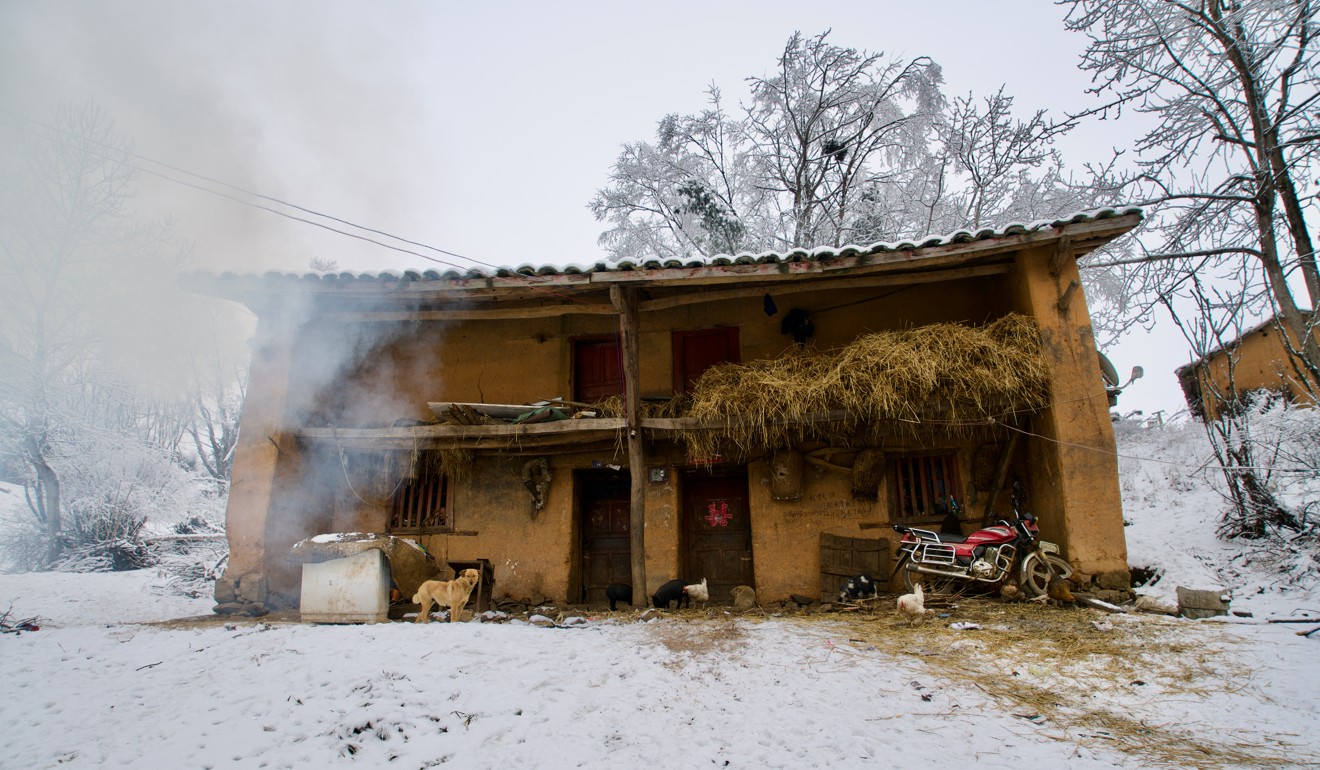
A teacher had photographed the third-grader after he arrived at school following a 90-minute trek from home along treacherous mountain paths and shared the picture on social media. Internet users nicknamed him “Ice Boy”.
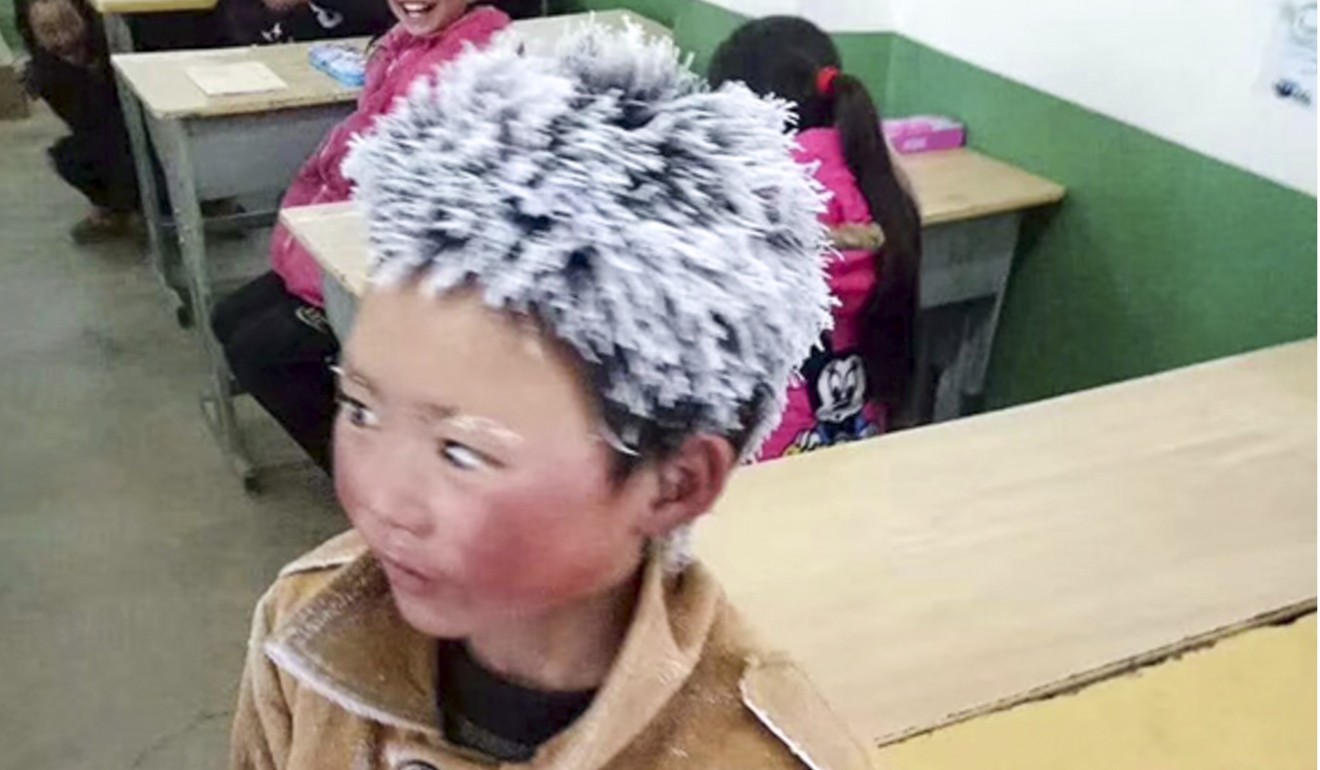
The unexpected fame brought a flood of donations to Fuman’s village, 60km (37 miles) from the city of Zhaotong in the poorest part of Yunnan, itself one of China’s least well-off provinces.
Fuman’s family has received 8,000 yuan (US$1,270) in cash on top of new clothes, books and toys, but other village families have also benefited from his new-found fame.
Each child attending the village school was given 500 yuan to take home after it received 100,000 yuan from the Communist Youth League, and other donors have offered individual families cash and everyday items.
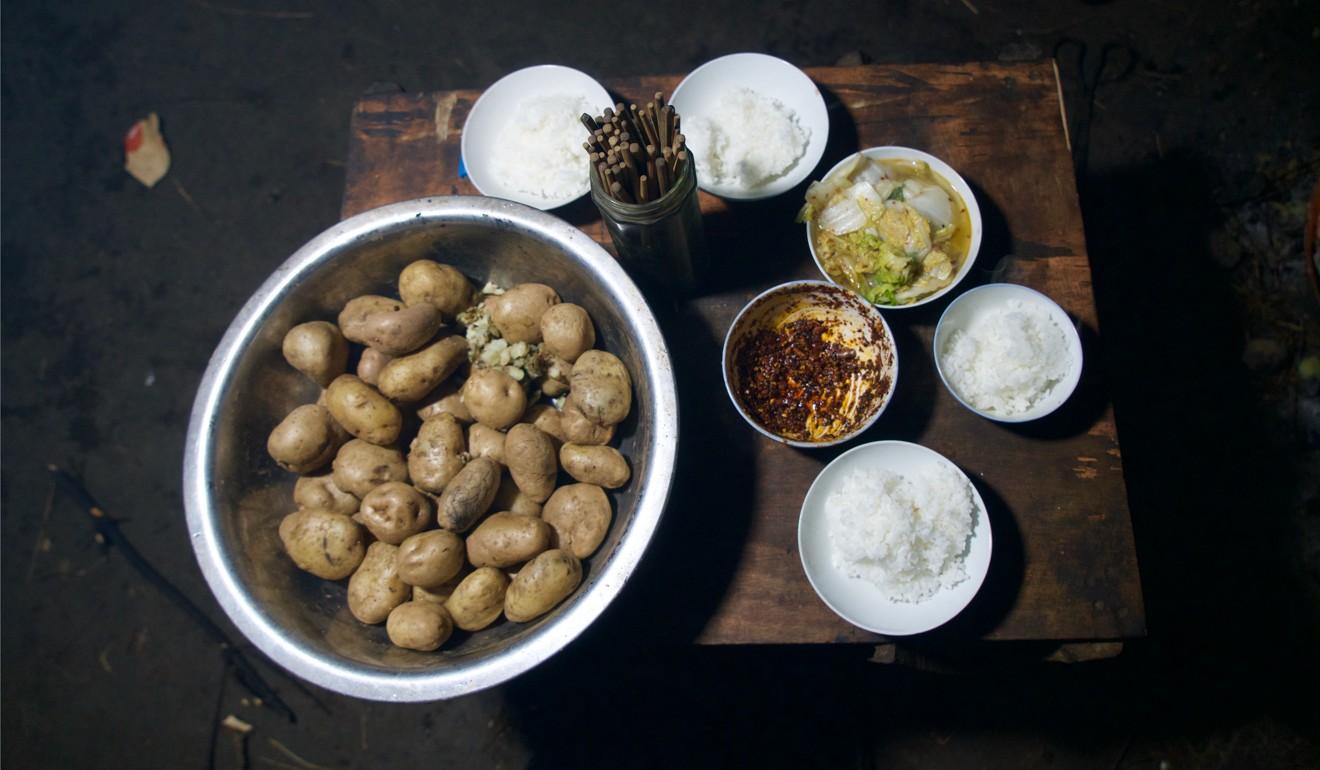
Fuman and Fumei said they were especially looking forward to the family’s Spring Festival dinner this year, as the extra cash meant they would be able to afford some Chinese cabbage and meat – a rarity compared with the potatoes and plain rice they have for every meal.
Zhuanshanbao’s villagers subsist on home-grown crops – potatoes, oats and buckwheat. It is difficult to grow other crops in the harsh environment, 3,000 metres (9,840 feet) above sea level, and their agricultural output is barely enough for their own consumption.
Fuman said food was so scarce that he often could not bring himself to eat the free slice of bread he received in school every morning.
“Sometimes I save the bread I get from school for my grandma,” he said. “I bring it home for her to eat because she works so hard every day.”
The villagers make a living by rearing cows and pigs, which they consider too valuable to eat themselves. They sell the livestock for cash to buy the rice that makes up the bulk of their two meals a day.
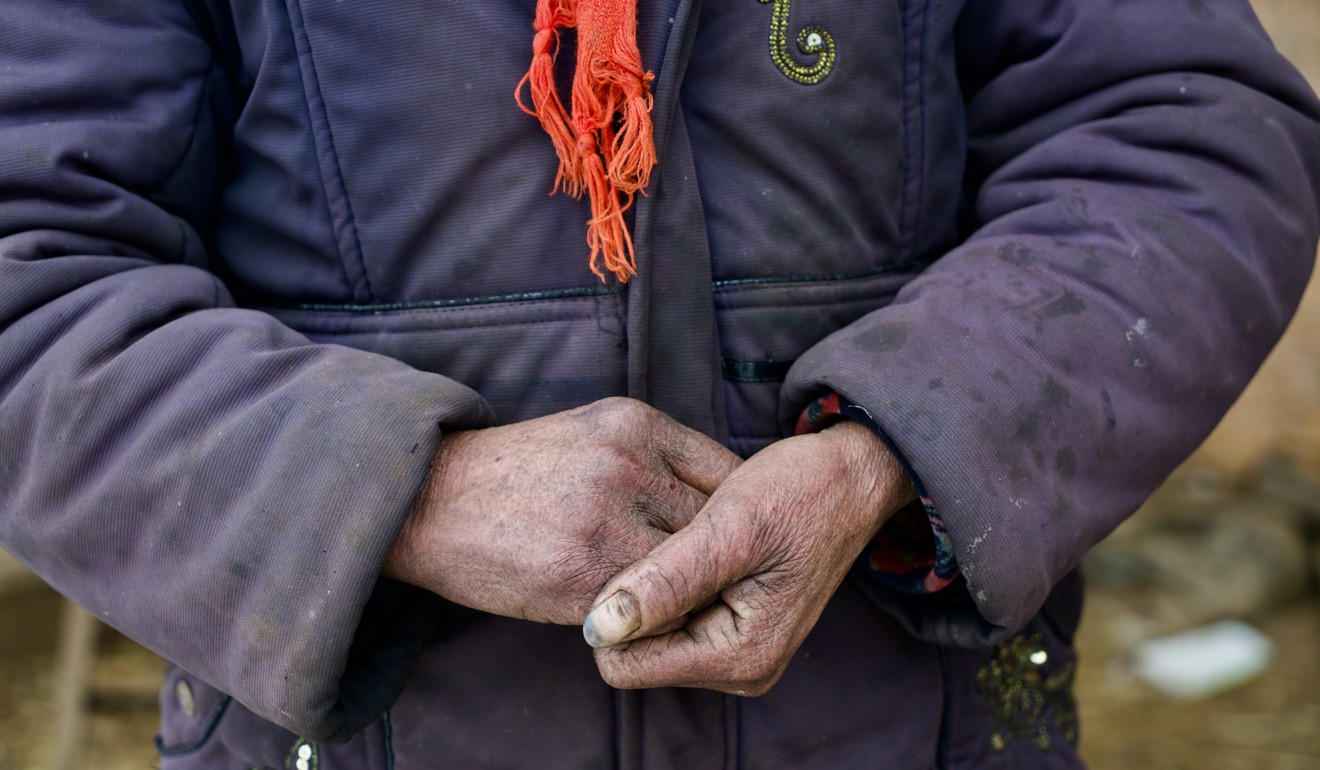
Households in the village earn between 4,000 to 5,000 yuan a year. That compares with a per capita disposable income across China’s rural areas of 12,363 yuan in 2016, according to the national bureau of statistics, and an urban per capita disposable income of 33,616 yuan.
For a shot at a better life, many young adults leave Zhuanshanbao, bound for Kunming, the provincial capital, or other big cities across China.
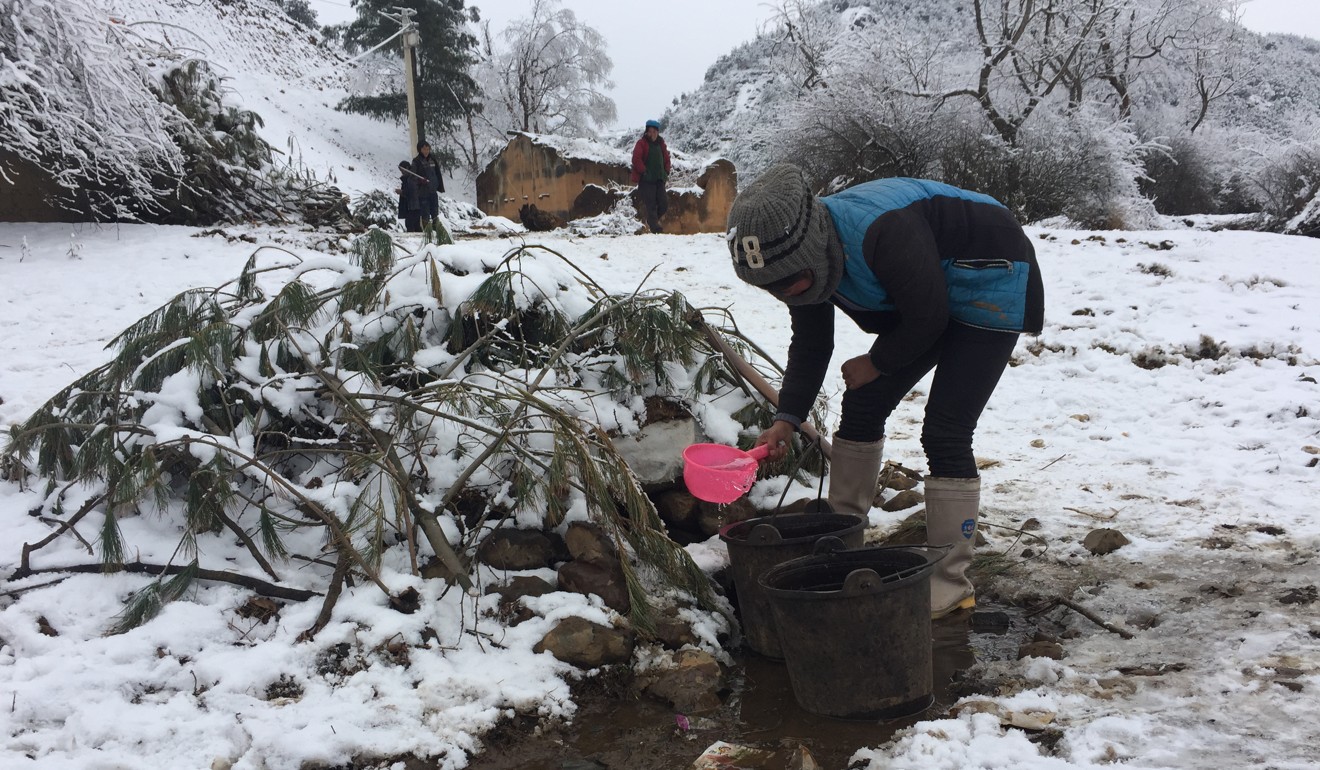
Fuman’s father, Wang Gangkui, worked at a construction site in Kunming until last month when he was offered a job in Zhaotong, only two hours away by bus, after his son’s photo went viral.
Wang, 29, took home 3,000 yuan a month from the job in Kunming, but that was barely enough to support his four dependents: Fuman, his 10-year-old sister Fumei, Wang’s 16-year-old brother and his elderly mother. His wife left them two years ago after growing weary of their daily struggle with poverty.
“I am so grateful for all the help and kindness that society has shown us,” Wang told the South China Morning Post in his home. “I am so thankful for this new job because now I can come home every three to five days and check on my children’s academic performance.”
Two minutes’ walk from Fuman’s home, neighbour and mother-of-three Jiang Zhonghui said her family had received 1,300 yuan in donations since Fuman’s photo went viral.
Volunteers also visited her home recently, giving her children 100 yuan each and a pile of new clothes.
“I was out that day. When I returned home in the evening, my daughter told me a woman came and called her ‘baby’. She also gave her confectionery,” Jiang said. “My children were all elated with their gifts.”
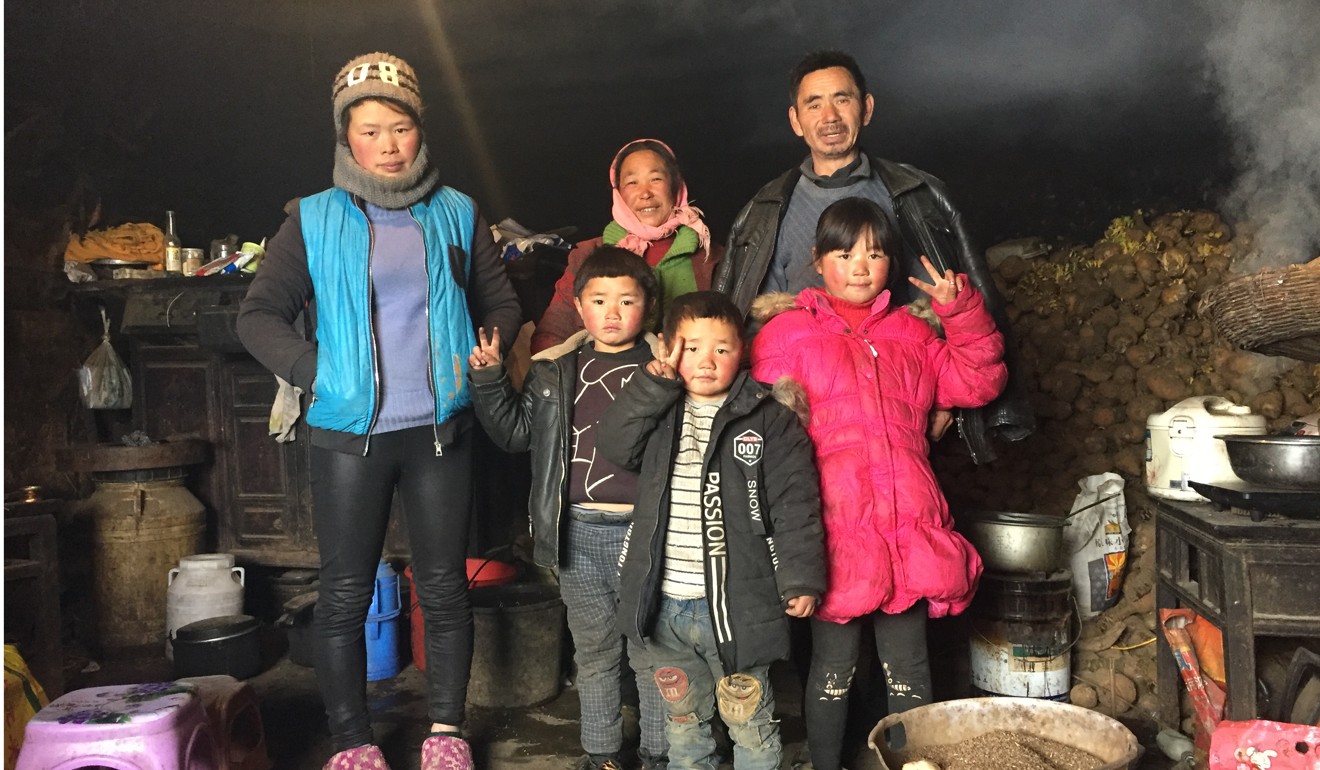
But villagers said Wang’s family was not even the poorest in Zhuanshanbao, and local official’s told The Paper, a mainland news website, its living standard was above average for the village.
The six-member Chen family, which appeared among the poorest in the village, said they had not benefited from Fuman’s fame.
Volunteers had not visited their home, a 10-minute walk from Fuman’s house, a disappointed Chen Renzhen said.
“My son didn’t get the 500 yuan from the school either, because he dropped out last October after he got injured in the face from a fight with his friends,” she said. “We didn’t receive any benefits.”
An elderly villager guarding the entrance to Fuman’s school said he was not surprised many people had been neglected, despite the outpouring of donations the media attention had brought.
“Fuman’s family isn’t even the poorest in the village,” he said with a shrug. “And there are dozens of other pupils who walk a far longer distance to school every day than he does. Many children take double the time Fuman takes to get to school.
“His situation is just too common in our village.”
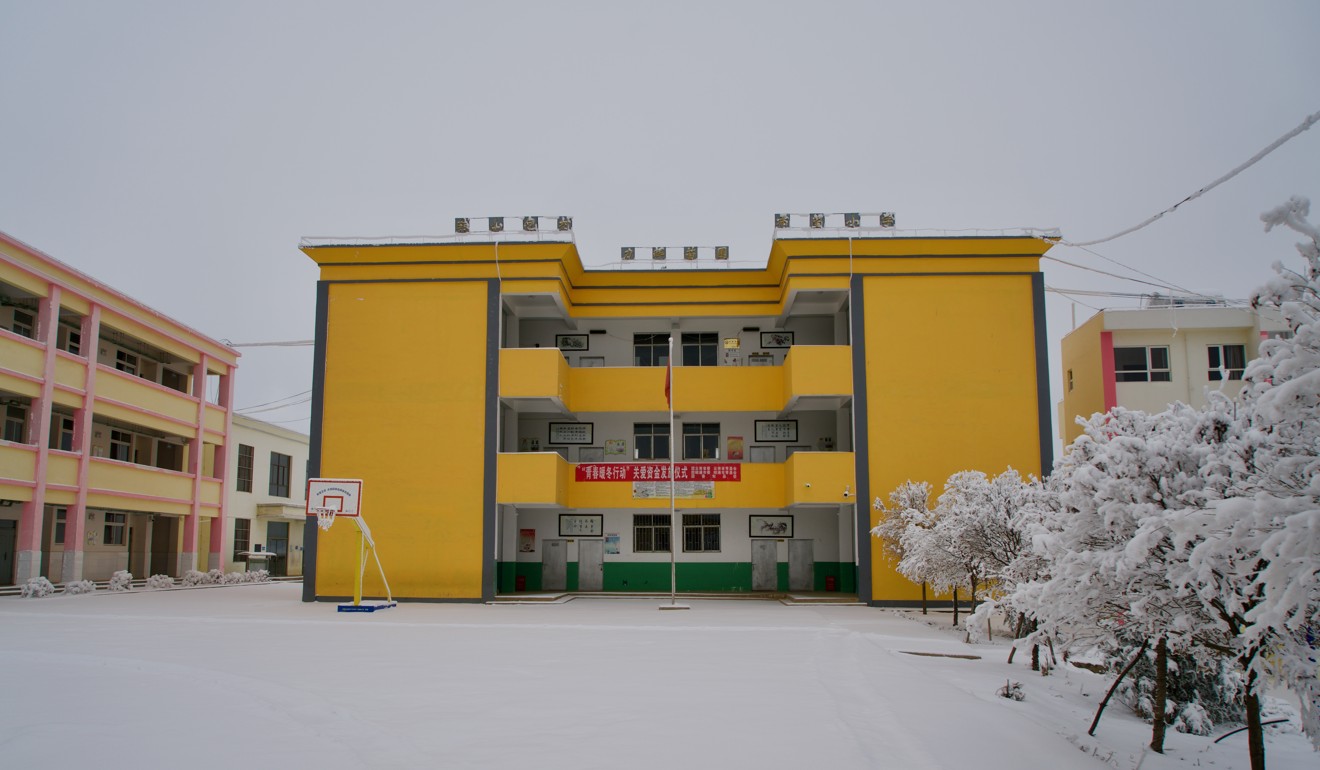
However, Jiang said Fuman’s fame had benefited the whole village, with the media attention prompting the authorities to order the local power company to finally connect electricity to new, government-subsidised houses.
The building of the new houses was commissioned by the local authorities in a bid to move families in the isolated village closer to road access.
Zhuanshanbao had been isolated from the outside world for decades until early last year, when a concrete road was built to connect the village to the nearest town, Xinjie. Some of the villagers’ old mud houses are about an hour’s walk from the new road, while the new houses are much closer.
The authorities gave each household 40,000 yuan to subsidise the building of the new houses, but Wang’s house cost 140,000 yuan – putting him in 70,000 yuan debt after he spent 30,000 yuan of his life savings.
The house has no door or windows, and he cannot afford to furnish it. “I don’t have money to decorate it, so we can’t move to my new house,” Wang said.
Ludian is one of China’s 600 or so state-recognised “poverty counties”, of which there are 88 in Yunnan alone. Some 4.47 million people in the province live below the poverty line – meaning their per capita income is less than 2,300 yuan a year, Farmers’ Daily, a newspaper affiliated with the Ministry of Agriculture, reported in October.
“It’s an uphill battle for Yunnan to wipe out poverty,” provincial party secretary Chen Hao was quoted as saying in the report. “There are 27 counties and 3,539 villages in Yunnan classified as living in extreme poverty … there are various reasons for destitution and it’s very difficult for all these places to eradicate poverty.”
Liu Yongfu, director of the State Council Leading Group Office of Poverty Alleviation and Development, said last year that more than 55.6 million rural residents who used to have an annual income of less than 2,300 yuan had been “lifted out of poverty” since 2012 and another 10 million were expected to make the transition in 2017.
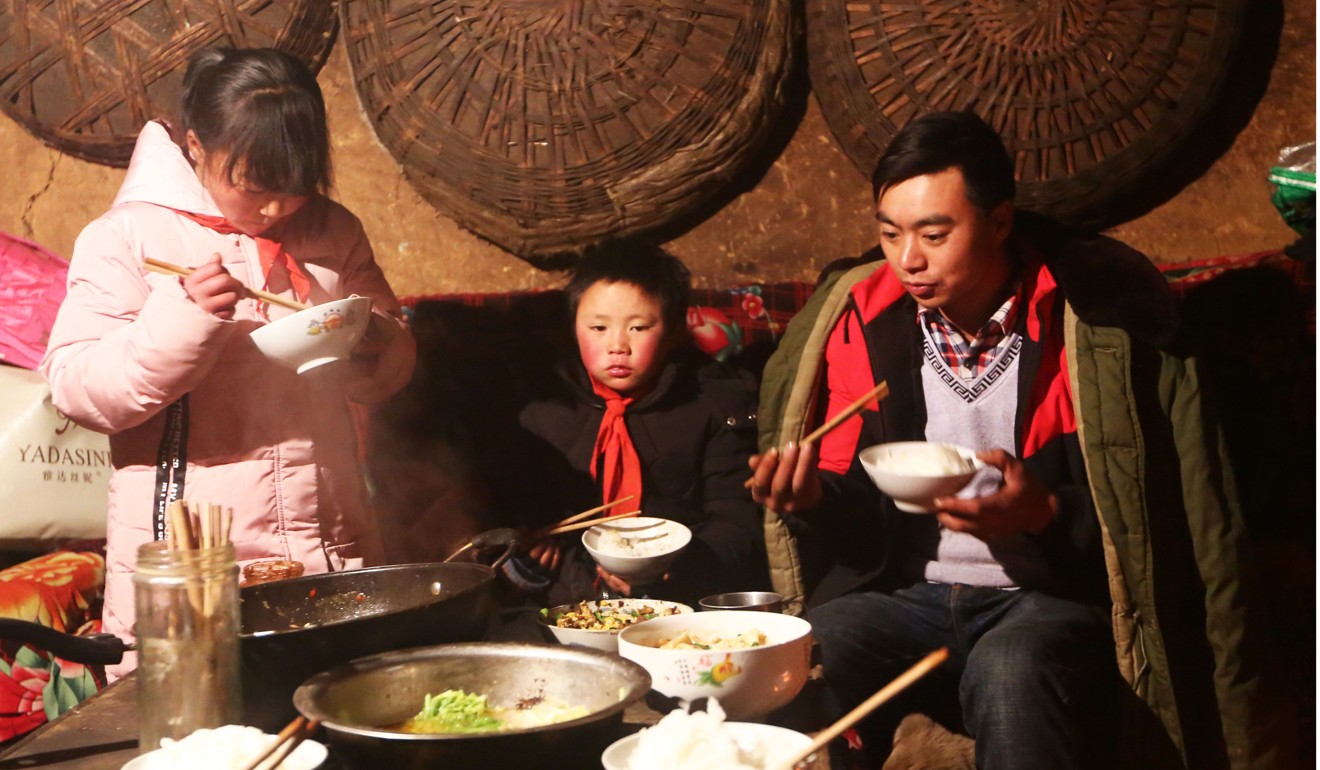
But there were six provinces where there were more than 3 million people below the poverty line and nearly 30,000 villages where at least 20 per cent of the population were deemed impoverished.
Professor Wang Sangui, who studies rural affairs at Beijing’s Renmin University, said important indicators to measure if a farmer was living in poverty were whether he was worried about food or clothing, whether his family had access to compulsory education and basic medical service and whether he lived in a safe house.
“From Fuman’s case, in which he only has thin clothing in below freezing temperatures and can only eat potato and rice, it’s easy to tell his family is very poor,” he said.
The professor said Zhuanshanbao was a typical village in China’s mountainous west, where transport was inconvenient, the natural environment ill-suited to farming, and villagers had to leave for big cities to earn more money.
“Reducing poverty in these regions is a truly daunting task,” he said.
Chen Huirong, an associate professor at Shanghai Jiao Tong University’s school of international and public affairs, said Fuman’s case had exposed mainland internet users living in affluent coastal regions to the grinding poverty found elsewhere in the country.
“Xi Jinping’s poverty alleviation drive is unprecedented in China’s history,” he said. “But the status quo in Fuman’s village and other similar rural areas are big challenges for the anti-poverty goal.”
He said rural officials might try to cover up poor regions’ problem under the pressure of meeting the 2020 poverty elimination deadline.
“Local governments should think of sustainable ways in fighting poverty, instead of just giving subsidies,” Chen said.
We have had many requests from readers wishing to donate to the family. To find out how to contribute, please email [email protected]

